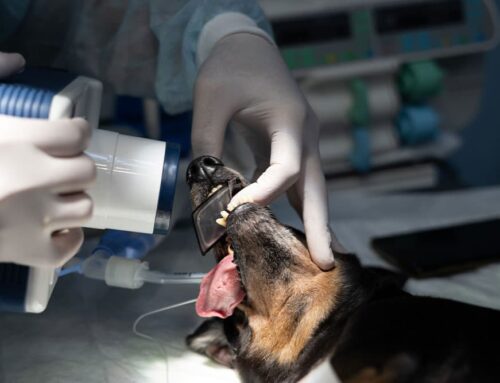Arthritis is joint inflammation and degeneration that is one of the most common conditions affecting middle-aged and older pets. Without appropriate management strategies, arthritis can cause significant pain and mobility issues for these pets. Our South Shores Pet Clinic team wants to help by providing information about this painful disease and its management to improve your pet’s quality of life.
Dog arthritis
Approximately 25% of dogs are diagnosed with arthritis in their life, and as many as 60% clearly show joint changes on X-rays. Common arthritic signs in dogs include:
- Lameness in the affected limb
- Difficulty getting up or down
- Walking stiffly, especially after resting
- Difficulty navigating stairs
- Reluctance to jump or or off furniture
- Decreased interest in physical activity
Cat arthritis
Since cats have small bodies, they typically compensate for orthopedic abnormalities better than dogs. However, they also tend to hide illness and discomfort, making arthritis detection difficult. In one study, 90% of cats older than 12 years of age showed joint changes on X-rays. Common arthritic signs in cats include:
- Weight loss
- Reduced activity
- Inappropriate elimination outside the litter box
- Difficulty jumping or navigating stairs
- Decreased grooming
- Uncharacteristic irritability or aggression
Pet arthritis causes
Many factors can contribute to pet arthritis, including:
- Orthopedic disease — Pet arthritis most commonly occurs secondary to orthopedic diseases such as hip dysplasia, cranial cruciate ligament disease, elbow dysplasia, patella dislocation, and osteochondritis dissecans.
- Body condition — Overweight and obese pets are at increased arthritis risk.
- Injury — Pet arthritis frequently occurs secondary to orthopedic injuries, such as fractures, ligament and tendon damage, muscle injury, joint infection, and cartilage damage.
- Nutritional history — Inappropriate nutrition early in life can predispose a pet to orthopedic disease and subsequent arthritis.
Pet arthritis diagnosis
If you notice changes in your pet’s behavior, posture, or ability to move easily, you should have them evaluated by our veterinary team, so we can determine if they have arthritis by performing tests that may include:
- Physical examination — Our veterinary team will assess your pet’s gait and posture while sitting and standing, and palpate and manipulate your pet’s limbs and joints to check for pain and swelling.
- X-rays — We may suggest X-rays of the affected area to determine how severely your pet is affected.
- Blood work — Our veterinary team may perform blood work to rule out other diseases, or prior to starting arthritis medications.
Pet arthritis management
Managing pet arthritis typically requires a multi-pronged strategy that may include:
- Weight management — If your pet is overweight, our veterinary team will devise an appropriate weight-loss strategy to help your pet safely lose excess pounds and reduce the stress on their arthritic joints.
- Environmental management — Modifying your pet’s environment can help improve their quality of life. Recommendations include:
- Provide soft, comfortable, supportive bedding in easily accessible locations throughout your home.
- Place steps or ramps near elevated surfaces to ensure your pet can easily access their favorite resting spot.
- Raise your pet’s food and water bowls, so they can eat and drink without hurting their neck.
- Place rugs to provide traction and help your pet navigate slippery surfaces.
- Provide a low-sided litter box to ensure your cat can easily get in and out.
- Medications — Non-steroidal anti-inflammatories (NSAIDs) and other pain medications are commonly prescribed for arthritic pets, and our veterinary team will determine the best medication for your pet. Never administer human medications to your pet, because many are toxic to pets.
- Joint supplements — Our veterinary team may prescribe joint supplements, such as glucosamine, chondroitin sulfate, and omega-3-fatty acids, to help manage your pet’s condition.
- Physical therapy — Rehabilitation exercises can help strengthen muscles and improve joint health and mobility.
- Laser therapy — K-laser therapy can help reduce arthritis inflammation and pain.
- Chiropractic care — We may recommend chiropractic care to help address some pets’ arthritis pain.
- Surgery — In severe cases, surgery to stabilize the joint, remove damaged tissue, or replace the joint, may be the treatment of choice to alleviate the pet’s pain.
Pet arthritis prevention

Pet arthritis can’t always be prevented, but you can take steps to lower your pet’s risk, including:
- Following recommended nutritional guidelines — From day one, feed your pet according to their recommended nutritional guidelines to prevent them from growing too fast and developing orthopedic abnormalities.
- Keeping your pet at a healthy weight — Overweight pets are at increased risk for arthritis. Calculate your pet’s daily energy requirements based on their weight, body condition score (BCS), age, activity level, and spay or neuter status, and feed them the appropriate amount based on this calculation to ensure your pet remains at a healthy weight.
- Scheduling regular wellness visits — Ensure your pet has a wellness check at least once a year, so our veterinary team can evaluate them for conditions such as arthritis. This helps us detect issues in the early stages when they are easier to manage.
Arthritis is a common condition in pets, but can be managed to help improve your pet’s quality of life. If you suspect your pet is suffering with joint pain, contact our South Shores Pet Clinic, so we can assess your pet’s joints, determine an appropriate treatment strategy, and alleviate their pain.







Leave A Comment